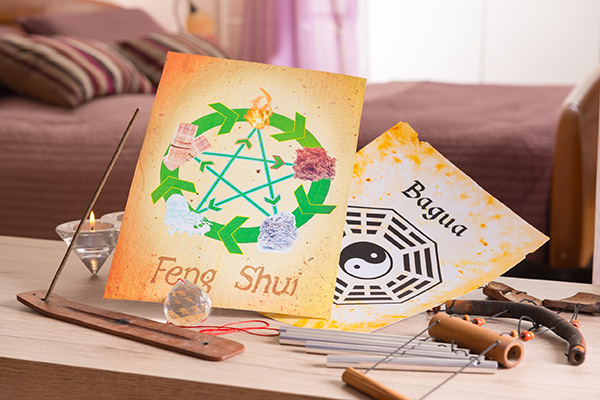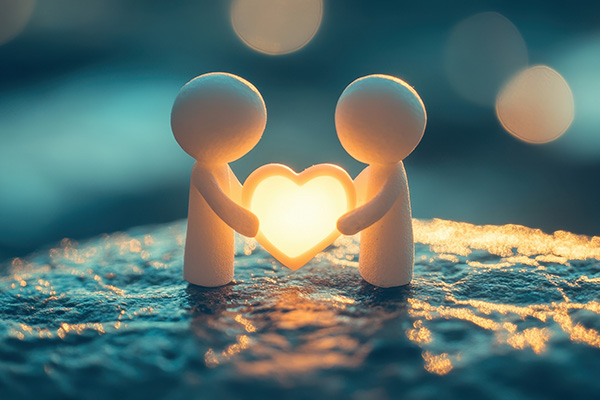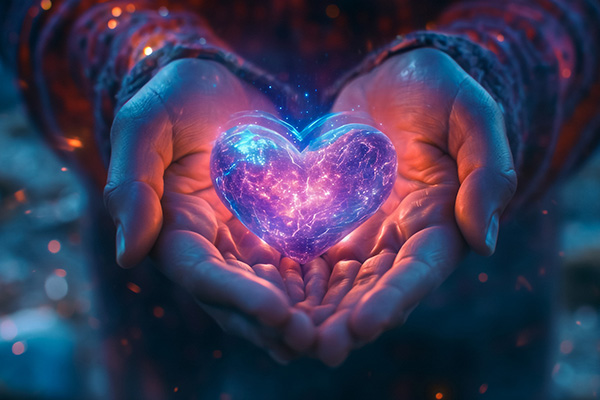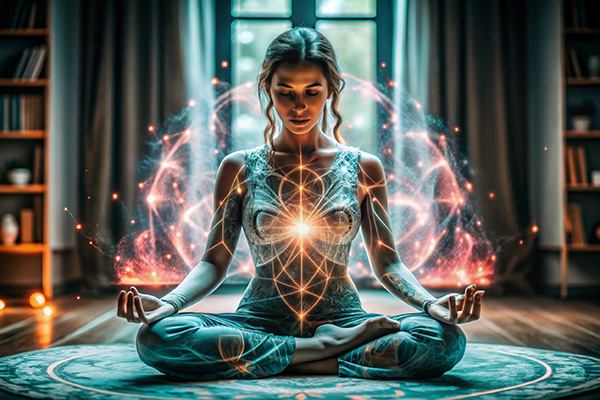spiritual lifestyle
Feng Shui Your Home For A Happier, Peaceful Life
 I am very much into how our thoughts and feelings help create our future. However, it needs to be asked what external factors affect those thoughts and feelings in the first place, such as our environment, for example. Therefore, the ‘Queen of Clutter’ (that being myself) would like to discuss how Feng Shui could help you attract better fortune into your life. Feng Shui is an ancient art from China, which involves balancing energies in any particular place. Here is how you can do it.
I am very much into how our thoughts and feelings help create our future. However, it needs to be asked what external factors affect those thoughts and feelings in the first place, such as our environment, for example. Therefore, the ‘Queen of Clutter’ (that being myself) would like to discuss how Feng Shui could help you attract better fortune into your life. Feng Shui is an ancient art from China, which involves balancing energies in any particular place. Here is how you can do it.
Begin With The Bagua
A bagua map (also called pakua) consists of nine squares, each one symbolizing an essential part of a balanced life. This map can be used in any room in your house, as a guide to finding the right area for positioning things.
You see, particular spots in any given room and particular objects contain the best energy possible, and a Bagua map will help you pinpoint these spots. All you need do is align the bottom part of your bagua map with the entrance to your room, and arrange things in their proper place thereafter.]
Get To Know Your Map
Should you be serious about using Feng Shui effectively, then understanding the bagua and what each section of it represents, is vital to your future success with this science. Quite simply, there is no other way than by taking your time and applying due consideration to the process of learning. In doing so, you should reap immense rewards, achieving a balanced and happier environment, and therefore a happier more balanced you.
Why This Rune Reader ‘Reverse Plans’ Her Day
 If you’d asked me a few years ago how I welcomed a new day, I would’ve rattled off a checklist: what needs to be done, what must be scheduled, what’s urgent and what’s not. I thought a structure schedule and curated life was strength. I believed that manifesting my future meant controlling it before it even arrived.
If you’d asked me a few years ago how I welcomed a new day, I would’ve rattled off a checklist: what needs to be done, what must be scheduled, what’s urgent and what’s not. I thought a structure schedule and curated life was strength. I believed that manifesting my future meant controlling it before it even arrived.
But somewhere along my spiritual path, I began to dance to a different rhythm. It was a kind of sacred tempo that doesn’t rush or demand. That doesn’t forecast before it senses and feels.
Today, I want to share that magical alternative rhythm with you. I call it reverse planning. It’s not a rigid system, but an invitation to trust time the way a rune whispers its truth.
Our modern culture tends to treat calendars like hammers. We use them to nail down the future with agendas, meetings, goals, and deadlines. On paper, life appears orderly, efficient, and decided. But for many of us, that creates a low-level anxiety that’s hard to name.
We wake up already carrying the weight of what hasn’t even happened yet. The day feels predetermined before we’ve had a chance to participate in it.
As someone who reads runes, symbols that speak across the ancient thresholds of time, I’ve come to believe that true guidance rarely comes in the form of a command. Instead, it arrives quietly, in the pauses, in the spaces between breaths. That’s where reverse planning begins: with presence, not pressure.
Love Is Not Just A Battery, It’s Also A Boomerang!
 Love is like a battery. Love is also like a boomerang.
Love is like a battery. Love is also like a boomerang.
When your energy is low, you may feel depleted and think you don’t have any more love to give. The opposite is also true. Complimenting a stranger or showing love to an animal or person re-energizes your battery.
Love is infinite, not finite. The love and joy you give to others comes back to you.
In fact, I often tell my yoga students and psychic clients who are struggling with depression or sadness to compliment at least ten people each day.
It can be something as simple as saying, “I love that shirt!” or “Your writing is so neat!” The smile on that person’s face raises your vibration, healing you as well as them. Most people are struggling with some kind of challenge, and that one compliment can change their day.
Studies have shown that smiling releases hormones that make you happy, while frowning releases hormones that make you sad. Laughing and crying intensifies these hormones. So, smiling at someone or laughing can actually raise your joy level and vibration.
We live in a hate and frustration driven world lately where people are increasingly divided and constantly judging and attacking each other. I belong to several social media groups where people constantly being unkind and intolerant to others. Continue reading
The Time I Visited All My Pets In The Afterlife
 Life has become much clearer to me over the years. But not in the usual way you might expect.
Life has become much clearer to me over the years. But not in the usual way you might expect.
Having a Near Death Experience (NDE) during surgery at the age of 34, plus practicing as a professional psychic reader fo over 46 years, changes your outlook on life and death in many ways.
One of the questions my clients sometimes ask is, “Do pets go to Heaven?” From my lived experience, the answer is a resounding, yes!
During my NDE, I remember quickly rising up through a tunnel toward a light so bright I had to squint my eyes. I then arrived in a space that felt like the outside of an elevator. It was some kind of ‘in-between area.’
As I stepped inside, every pet I had ever loved in my life up to that moment was gathered around my feet, tails wagging, overjoyed to see me. Dogs and cats…they were all there!
So yes, in my experience, your pets will be there to greet you, just as mine were. On the other side, there are animals of all kinds, peacefully coexisting and filled with joy. I have no doubt our pets in Heaven know when we are coming home to join them. They wait for us with open hearts.
In Heaven, if you wish to have a home, you will. What you think becomes your reality there. So, of course, your beloved pets will once again live with you. They are already running, playing, and waiting for you and you will recognize each one of them.
Your Sacred Center Of Self-Love
 We all thrive on being loved. This is natural, of course, if you look back at humanity in history on an evolutionary level. Ancient people came together in tribes, families, and groups, to cultivate a place of safety, security, nurturance, and love.
We all thrive on being loved. This is natural, of course, if you look back at humanity in history on an evolutionary level. Ancient people came together in tribes, families, and groups, to cultivate a place of safety, security, nurturance, and love.
If you were different or stood out in any way, or even left the tribe, you were literally putting your own life at risk. This topic can be viewed from so many arenas, including psychological, spiritual, scientific, and psychic.
I often wonder how and when did we start defining ourselves by how others felt about us, and why did we believe that other’s thoughts about us were true? At what point in time did we allow others to define us? It’s as though we as humanity went into a deep trance.
We all know the phrase, “Love thyself first”. When did we forget this vital piece of information?
There are many ways we can come back in touch with this essential truth, but for the most part, our society does not support a lifestyle that would naturally lead us back to our sacred center of self-love.
How often do you take a moment to look in the mirror, or tell yourself, “I love you?” Most of us feel silly doing this, but it is very healing.
Have you ever met an older person who behaves in ways that are foolish or who just doesn’t give a hoot what anyone else thinks? My paternal grandfather used to throw dinner rolls across the table at me in fancy restaurants. While my parents and other family seated at the table would roll their eyes at my Grampy, I used to laugh hysterically!
The Empowered Empath’s Guide To Spiritual Self-Care
 Empaths, sensitives and intuitives tend to be givers. Loyal, sometimes to a fault, and fiercely protective of those they care about… moving at lightning speed whenever called upon.
Empaths, sensitives and intuitives tend to be givers. Loyal, sometimes to a fault, and fiercely protective of those they care about… moving at lightning speed whenever called upon.
So, when I say to an empath that it may be time to put themselves first, the response is often mixed.
But, if putting yourself first seems too selfish or too difficult, try something simpler: at least put yourself on an equal footing with those you love and care for.
For many sensitive and highly intuitive people, self-care must be an acquired behavior… and it’s a big one. Empaths intend to be selfless, to help, heal and facilitate those they care about. Wonderful!
But remember, if this is your goal, then begin with yourself. The stronger, healthier and happier you are then the more effective, nurturing and supportive you can be to those around you.
Putting yourself first doesn’t mean that you are doing only what you want to do all the time, and it doesn’t mean that you are suddenly going to ignore those you care about.
What it does mean is making it a priority to take care of your own physical, mental, emotional and spiritual needs. This can be a tall order and quite the task for some empaths. Don’t wait until you are in a meltdown… frustrated and snapping at everything and everyone around you, with little or no provocation.
How To Cleanse And Charge Your Crystals
 If you use crystals in your spiritual practice, it is important to periodically cleanse and charge them.
If you use crystals in your spiritual practice, it is important to periodically cleanse and charge them.
For example, when you first purchase or receive a crystal as a gift, clearing it can ensure that you are working with a ‘clean slate,’ and are able to both fully connect with that crystal and set more powerful intentions for its use.
Beyond this, charging a crystal ensures that we are able to use it most effectively for our purpose.
So, how can you go about charging and cleansing your beloved crystals?
The good news is that this process is quite simple and easy, and you can use the same method to both charge and clear a crystal:
Moonlight
Place your crystal in a place where it can bathe in the light of the moon overnight. Full moon is, of course, the best time to do this, and one night is enough to both cleanse and charge your crystal.
That said, if I am using a crystal for manifestation, I will sometimes leave my crystal for the full waxing period of a moon cycle, from new moon to full moon.